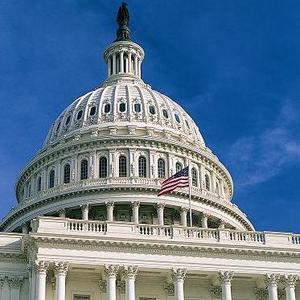Biodiesel producers, advocates from 27 states hit Capitol Hill

June 17, 2014
BY The National Biodiesel Board
Nearly 100 biodiesel producers, feedstock suppliers and other advocates are traveling to Washington, D.C., this week to voice concerns about the Obama administration’s proposed renewable fuel standard (RFS) for biodiesel.
The biodiesel supporters, who will be visiting with lawmakers on Capitol Hill June 17, arrive at a critical time for the industry, which has seen widespread cutbacks this year as a result of policy setbacks in Washington. A recent national survey of producers conducted by the National Biodiesel Board found that more than half have idled a plant this year and 78 percent have reduced production from last year. Nearly two-thirds—66 percent—have already laid off employees or anticipate doing so.
“People are losing their jobs in this industry as we speak, and it’s largely because Washington has delivered sporadic, inconsistent policy,” said Anne Steckel, vice president of federal affairs at NBB, the industry trade association. “As President Obama has said, America should be the world leader in biodiesel and in advanced biofuels. And we can be. But we need this administration and this Congress to stand behind strong energy policy that encourages investment and growth.”
Biodiesel—which had a record U.S. market last year of nearly 1.8 billion gallons—is made from an increasingly diverse mix of feedstocks including recycled cooking oil, soybean oil and animal fats. It is the only domestic, EPA-designated advanced biofuel produced on a commercial scale across the country. The EPA has determined that it reduces greenhouse gas emissions by 57 percent to 86 percent. With plants in nearly every state in the country, the industry supported more than 62,000 jobs in 2013.
Advertisement
Advertisement
The biodiesel advocates traveling to Washington represent companies in at least 27 states. Their visit will focus on concerns about the Obama administration’s RFS proposal for biodiesel, which would set biodiesel volumes at 1.28 billion gallons, a sharp cut from last year’s actual production. They also will call on lawmakers to reinstate the $1 per gallon biodiesel tax incentive, which expired on Dec. 31.
“The recent spike in oil prices stemming from the situation in Iraq should remind us all why these policies are so important,” Steckel added. “We constantly talk about the need to reduce our dependence on oil. Doing that requires massive investments and infrastructure improvements that simply won’t happen without strong energy policy. We can’t keep taking one step forward and two steps back.”
Advertisement
Advertisement
Related Stories
The U.S EPA on July 17 released data showing more than 1.9 billion RINs were generated under the RFS during June, down 11% when compared to the same month of last year. Total RIN generation for the first half of 2025 reached 11.17 billion.
The U.S. EPA on July 17 published updated small refinery exemption (SRE) data, reporting that six new SRE petitions have been filed under the RFS during the past month. A total of 195 SRE petitions are now pending.
The USDA has announced it will delay opening the first quarterly grant application window for FY 2026 REAP funding. The agency cited both an application backlog and the need to disincentivize solar projects as reasons for the delay.
CoBank’s latest quarterly research report, released July 10, highlights current uncertainty around the implementation of three biofuel policies, RFS RVOs, small refinery exemptions (SREs) and the 45Z clean fuels production tax credit.
The U.S. EPA on July 8 hosted virtual public hearing to gather input on the agency’s recently released proposed rule to set 2026 and 2027 RFS RVOs. Members of the biofuel industry were among those to offer testimony during the event.
Upcoming Events










